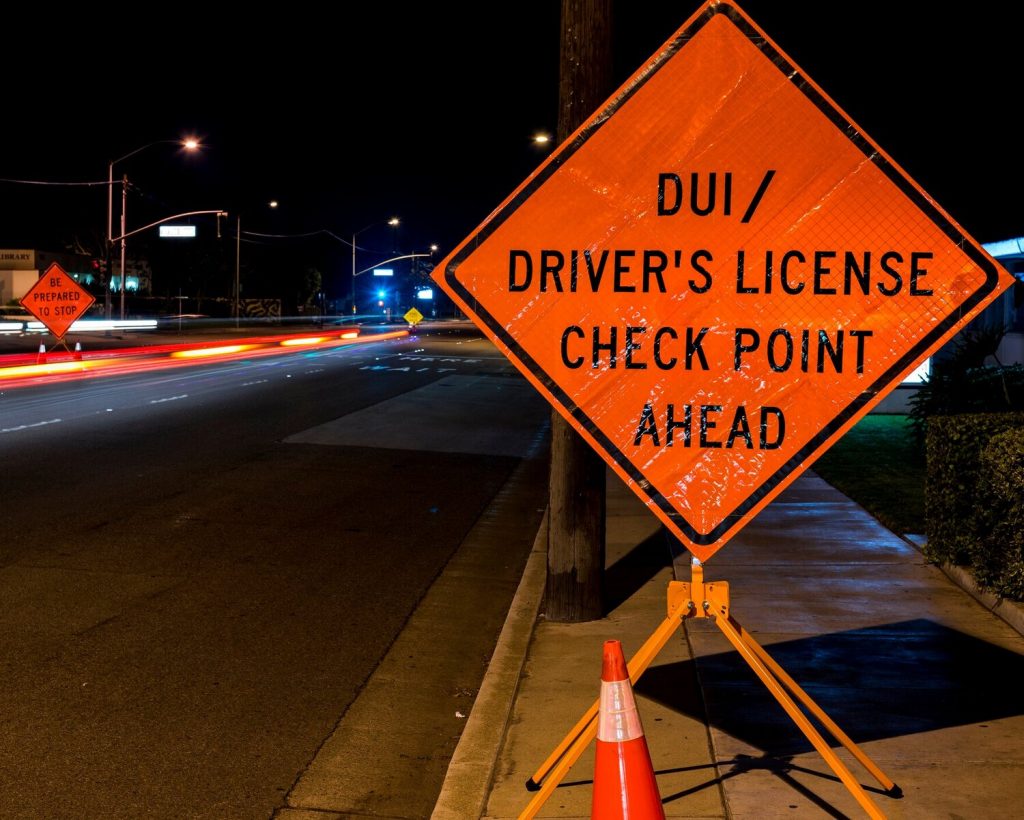If you have been arrested at a DUI checkpoint in St. Petersburg, you will need a criminal defense attorney like the ones at the law offices of William B. Bennett, PA for specific information pertaining to cases involving DUI roadblocks occurring in Pinellas County.
Your DUI Roadblock and Sobriety Checkpoint Attorney | St. Petersburg, FL
What is a DUI Roadblock?
A DUI roadblock, also known as a sobriety check point is a technique used by law enforcement to identify drunk or impaired drivers. Lights, signs and police vehicles are used to block off an entire section of road in order to signal to drivers of the impending checkpoint ahead. Vehicles passing through the checkpoint are directed into lines where the police officers can process each vehicle.
DUI roadblocks are set up in areas where they will have the best chance of catching impaired drivers, usually on weekends and on holidays in the early hours of the morning. In particular, local police often coordinate DUI roadblocks with nationwide crackdowns on drunk driving that are sponsored by the U.S. Department of Transportation.

What happens at DUI roadblocks?
When a driver arrives at a checkpoint, it will be marked with signs, lights and police vehicles. In fact, several police officers will be present on the scene. Officers will direct drivers to reduce their speed as they are directed into designated lines.
Several vehicles will be stopped in each line where an officer will ask for license, registration and proof of insurance. At this time they are looking for signs of impairment to give them probably cause to conduct further investigation. For example, signs they are looking for may include glassy eyes, slurred speech or alcohol on a driver’s breath. In the event that the officer is aware of any signs of impairment, they can claim probable cause to conduct a field sobriety test. A field sobriety test is then conducted in a separate area of the checkpoint.
If the driver fails the field sobriety test, they are then placed under arrest for suspicion of a DUI. Additionally, they are requested to submit to a physical test to determine the amount of alcohol in the blood, usually in the form of a breath test. A breath test must be administered within 20 minutes of the observation of impairment. A blood alcohol level result of .08 or higher in the state of Florida is considered above the legal limit to operate a vehicle.
The driver will then be moved to a holding area with other detainees until they can be transported to jail for processing. The driver’s car will be impounded and towed from the DUI roadblock area.
Are DUI Roadblocks Constitutional?
Sobriety checkpoints are legal in the United States. However, it is still widely argued that DUI roadblocks are a violation of a person’s 4th amendment rights (being stopped and searched without probable cause or search warrant).
DUI roadblocks were made legal in 1990 under a supreme court ruling. The court acknowledged that a sobriety checkpoint infringed on 4th amendment rights, but ultimately ruled that the safety factor greatly outweighed that infringement and they were deemed necessary.
How Do I Get An Arrest From DUI Checkpoint Dismissed?
Sobriety checkpoint cases can be radically different than typical DUI cases. While we can’t guarantee a dismissal from every sobriety checkpoint case, there are a few factors that come into consideration that can make or break a case.
For starters, it has been established that the State of Florida must use certain guidelines when enforcing laws against drunk driving in a DUI roadblock. These guidelines are designed to help avoid a person’s 4th amendment rights from being violated.
DUI Checkpoint Requirements
According to The National Highway Traffic Safety Administration, the following guidelines must be followed:
- DUI Roadblocks must be part of a specific law enforcement program to curb drunk driving in the community.
- The checkpoints must be strategically placed in a high volume area with a specific goal of reducing drunk driving accidents in that area.
- The local courts should be aware and in support of the use of DUI roadblocks.
- Before a DUI roadblock is executed, proper procedures must be reviewed and established for how it will be run by all the officers involved.
- Advance warning should be given for all drivers that a roadblock will occur.
- Signs for a checkpoint should be obvious to alert drivers that they are approaching a checkpoint.
- All law enforcement officers need to make their presence clearly known.
- All drivers that are suspected of drunk driving should be given a physical test within a reasonable amount of time.
- Each roadblock must not interfere with the flow of traffic.
- Each roadblock must not distract drivers.
- Each roadblock must be arranged so drivers can avoid the roadblock.
- All officers on site must be trained for DUI investigations.
- All roadblock procedures must be applied consistently at each roadblock event.
- All roadblock procedures must be established in advance of the event.
- Drivers stopped at checkpoints should be asked for feedback
Where it can be proven that law enforcement did not follow the appropriate guidelines, your DUI lawyer can file a motion to have the case dismissed.
Upcoming Sobriety Checkpoint Information
According to necessary guidelines, law enforcement must give advance notice of upcoming DUI roadblocks. You can find that information posted on the St. Petersburg police and Hillsboro County Sheriff department websites below:
If you have been arrested at a DUI roadblock or sobriety checkpoint, contact the law office of William B. Bennett, P.A. to speak to an expert DUI lawyer that will protect your rights. Many times these cases can be dismissed. Call our office at (727) 821-8000 or contact us here on our website to learn more.
